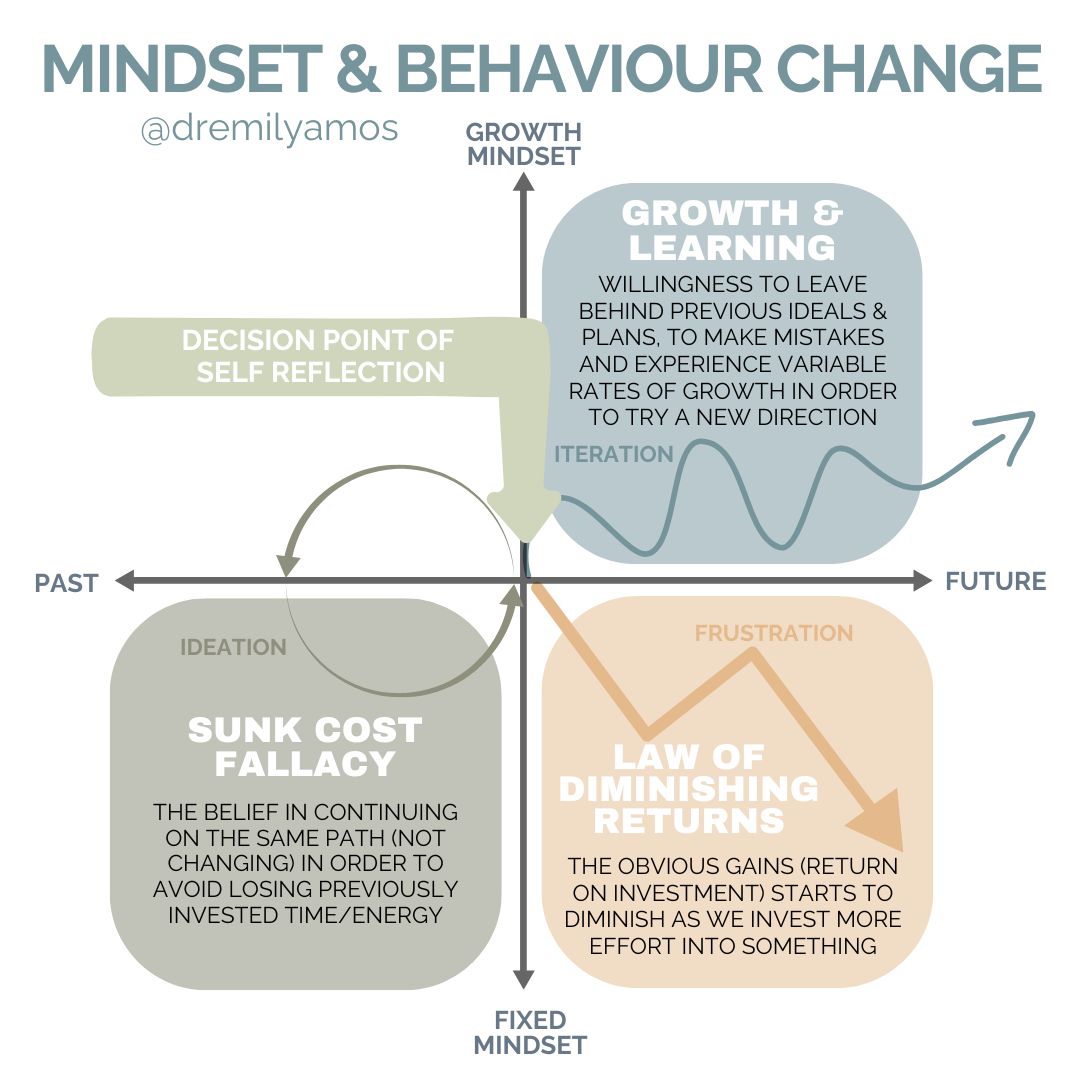Growth Mindset & Healthy Habits
Feb 24, 2025
We’ve all been there- starting a new habit with enthusiasm, only to hit a roadblock and feel like giving up. Whether it’s exercising regularly, eating healthier, or practising mindfulness, sustainable behaviour change can be challenging. But what if the key to success isn’t just willpower or motivation, but the way we think about our ability to change?
This is where a growth mindset comes in. Coined by psychologist Carol Dweck, a growth mindset is the belief that our abilities, intelligence, and behaviours are not fixed but can be developed through effort, learning, and persistence. This mindset shift is crucial for making lasting healthy changes.
Why a Growth Mindset Matters for Behaviour Change
1. Resilience in the Face of Setbacks
Setbacks are inevitable when forming new habits. A growth mindset helps reframe obstacles as learning opportunities rather than failures. Instead of thinking, “I skipped my workout today... I'm terrible at sticking to routines,” a growth-oriented approach would be, “I missed today, but I can plan better for tomorrow.”
2. Embracing the Process, Not Just the Outcome
Many people focus solely on results; losing weight, running a certain distance, or meditating for a set time. However, a growth mindset encourages valuing the process itself. Recognising progress in small improvements reinforces positive behaviours and sustains motivation.
3. Shifting from ‘All-or-Nothing’ Thinking
A fixed mindset often leads to rigid thinking- “If I can’t do it perfectly, I might as well not do it at all.” This perfectionist trap can derail efforts to build new habits. A growth mindset allows flexibility, encouraging a “something is better than nothing” approach, which makes consistency more achievable.
4. Developing Self-Compassion
Self-judgement is one of the biggest barriers to change. If we believe we’re just “bad” at healthy living, we’re less likely to persist. A growth mindset fosters self-compassion by reminding us that improvement takes time and effort, and setbacks don’t define us. Think about how we encourage children when they are learning something new- we speak gently, offer encouragement, and remind them that mistakes are part of learning. We can apply the same compassionate approach to ourselves. This is a skill of mindfulness called ‘beginner’s mindset’- embracing each step of learning with curiosity rather than judgment.
5. Understanding the Law of Diminishing Returns
The law of diminishing returns states that as we continue to invest effort into something, the additional benefits gained tend to decrease over time. Early progress may feel rapid, but improvements may slow. This can be frustrating, but recognising that progress naturally slows over time can help maintain motivation. To overcome this, it’s helpful to introduce variety into your routine, set new challenges, or shift your focus to qualitative improvements rather than just quantitative results. Accepting this principle allows for a more sustainable and long-term approach to habit formation.
6. Avoiding the Sunk Cost Fallacy
The sunk cost fallacy occurs when we continue investing in something simply because we’ve already spent time, effort, or resources on it, rather than because it is still beneficial. In behaviour change, this could manifest as sticking to a habit that no longer serves us just because we’ve put in work to establish it. For example, forcing yourself to continue a workout routine you no longer enjoy can lead to burnout or resentment. A growth mindset helps us reassess our actions based on their present and future value rather than past efforts. It’s important to be flexible and adapt our habits to align with our evolving goals and well-being.

Practical Strategies to Cultivate a Growth Mindset for Healthy Habits
1. Reframe Your Self-Talk
Notice limiting language such as “I’ll never be a morning person” or “I just don’t have discipline.” Replace these with growth-oriented phrases: “I’m learning to wake up earlier” or “I’m building my discipline step by step.”
2. Celebrate Small Wins
Instead of focusing only on long-term goals, acknowledge daily progress. Every time you choose a healthy option, take a short walk, or practise deep breathing, you reinforce the habit. Small wins create momentum and reinforce positive behaviour, making it easier to maintain consistency over time.
3. Learn from Setbacks
Rather than seeing mistakes as failures, analyse them as data. What triggered the setback? What strategies could help next time? This reflective approach is a form of self-coaching that prevents discouragement and supports long-term success. Keeping a journal or tracking your progress can help identify patterns and make necessary adjustments.
4. Surround Yourself with Growth-Oriented People
Being around individuals who embrace challenges and see effort as a path to mastery can reinforce your mindset. Whether through friends, online communities, or a coach, supportive environments matter. Engaging with like-minded people provides motivation, accountability, and inspiration for staying on track.
5. Adopt a ‘Yet’ Mentality
If you catch yourself saying, “I can’t run 5kms” or “I’m not good at cooking healthy meals,” add one powerful word: YET. “I can’t run 5kms yet” shifts the statement into a possibility, reminding you that skills develop with practice. This subtle shift in mindset encourages perseverance and continuous learning.
6. Visualise Your Progress
Keeping a journal, using habit-tracking apps, or simply reflecting on how far you’ve come can reinforce the belief that change is possible and sustainable over time. Visualisation techniques, such as imagining yourself achieving your goals, can help reinforce motivation and commitment.
7. Practise Patience and Persistence
Sustainable habits don’t develop overnight. Recognise that growth takes time, and every step- even small ones- brings you closer to your goal. Cultivate patience by focusing on consistency rather than immediate results, and remind yourself that long-term success is built on steady, persistent effort.
Final Thoughts
Behaviour change isn’t about perfection, it’s about persistence. By adopting a growth mindset, you create space for flexibility, self-compassion, and long-term success in your health journey. Understanding key principles like the law of diminishing returns and the sunk cost fallacy helps you make more informed decisions about your habits and progress, allowing you to stay committed even when times get tough.
The next time you struggle with a new habit, remember: it’s not about whether you’re “good” or “bad” at it- it’s about how you approach growth. Keep learning, keep showing up, and trust that each step forward is progress.
If you would like some help harnessing the power of behaviour change to establish healthy habits then don't forget to check out my course mind.mood.body.breath.

Stay connected with news and updates!
Join the mailing list to receive the latest blogs, news and updates.
Don't worry, your information will not be shared.
We hate SPAM. We will never sell your information, for any reason.

